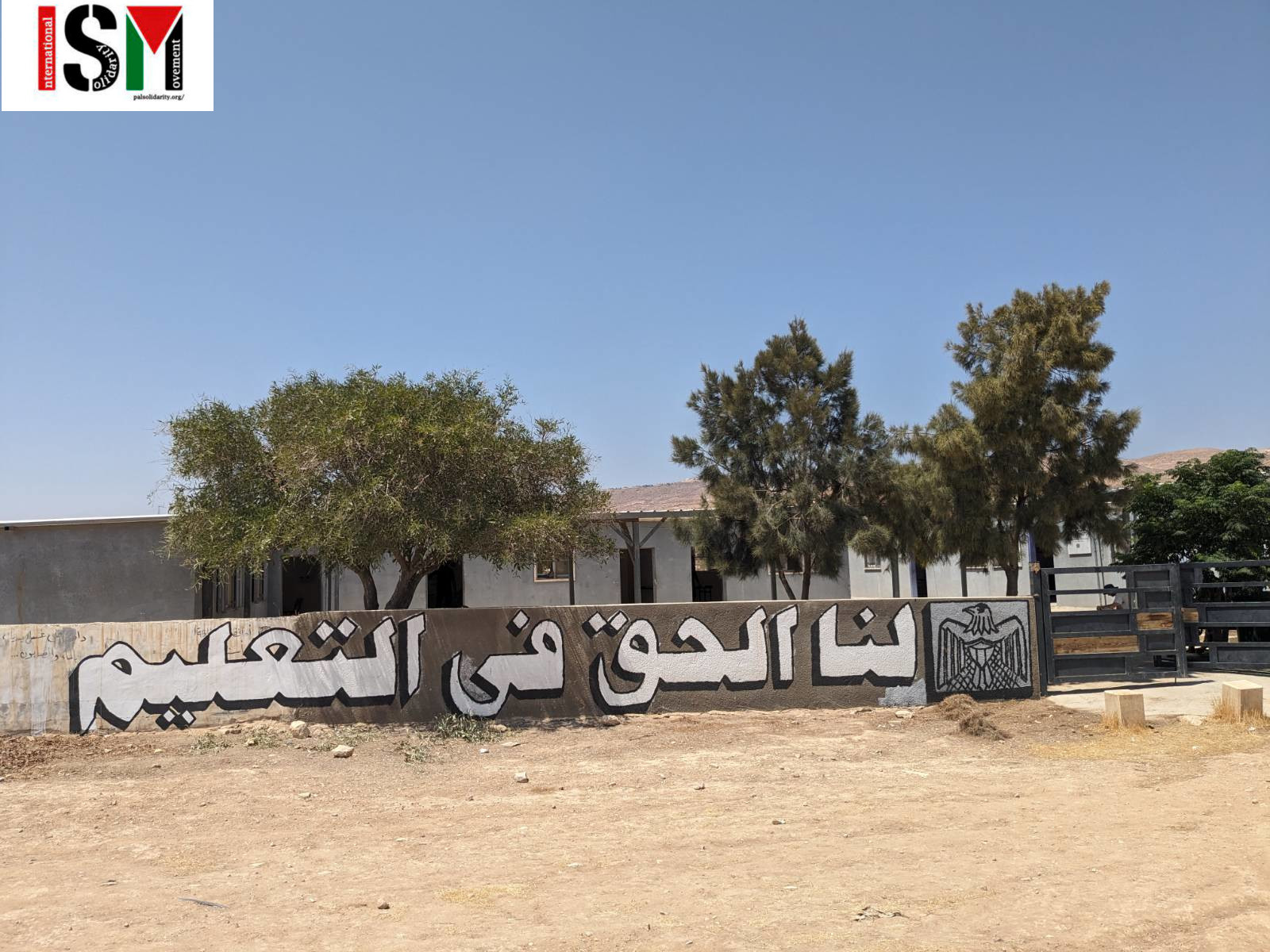Tag: Tuba
-
Increase in settler violence and threat of school demolition in Masafer Yatta
Following the killing of an Israeli settler in Hebron on Monday 14 August, there has been an increase in the threat and use of violence by Israeli settlers in Masafer Yatta. On Tuesday, three settlers from the illegal Israeli outpost of Avat Ma’on arrived in the village of Tuba with their flock, and got provocatively…
-
South Hebron Hills – farming under occupation
27th April 2015 | International Solidarity Movement, Team Al Khalil | South Hebron Hills, Occupied Palestine Located in the tip of the West Bank, the South Hebron Hills are dotted with farming and shepherd communities. We are currently in the wheat harvest season and the children are spending their last few weeks at school before…
-
Palestinian testimonies about settler attack in Tuba
20 May 2011 | Christian Peacemaker Teams Christian Peacemaker Teams (CPT) has released a video of Palestinian testimonies about the recent settler invasion in the village of Tuba. On 16 May, shortly before midnight, Israeli settlers invaded Tuba, damaged property, and stole and injured several sheep belonging to the Ali Awwad family. Members of the…


